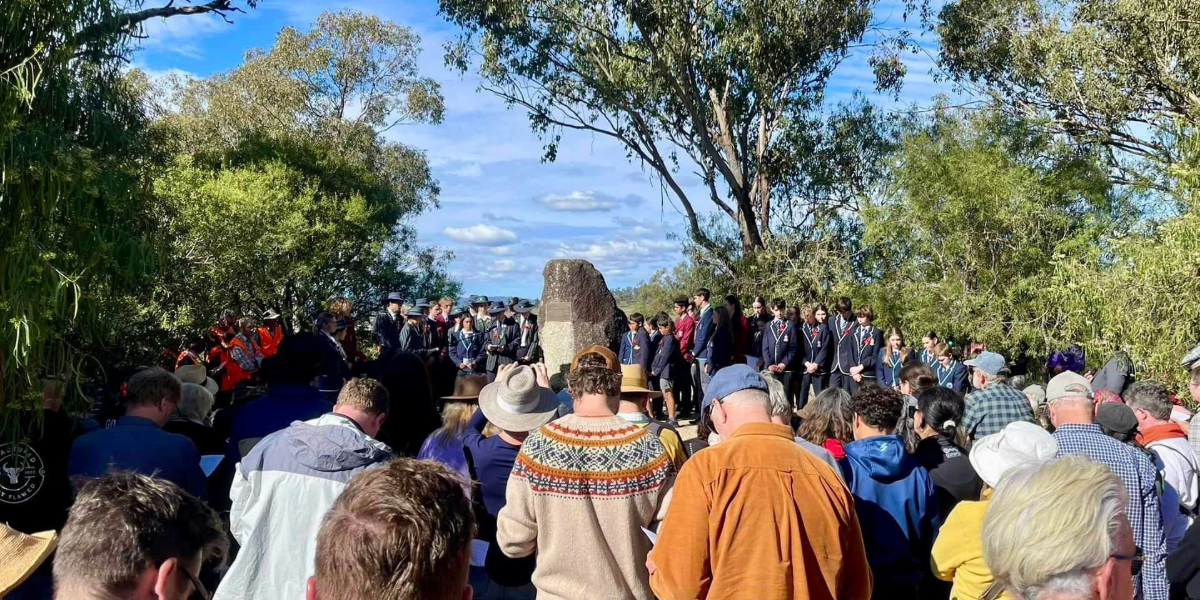Every June hundreds of people gather to remember the massacre of Aboriginal people at the hands of non-Indigenous settlers at Myall Creek.
On June 10, 1838, a group of 11 settlers rode onto Myall Creek station, killing 28 Aboriginal men women and children. Seven of the perpetrators were trialled, convicted and executed in a national first.
“It marked the first time in our country’s history where white people were brought to justice for the frontier violence that was rampant across the length and breadth of this country,” said Keith Munro, co-chair of Myall Creek Memorial Committee.
About 400 people visited the memorial site between Inverell and Bingara over the weekend to mark the anniversary of the massacre, 186 years after it happened. The memorial site on the Delungra Road, which is listed on the National and State Heritage Register, is a place of great significance and beauty. The memorial itself was placed on the site in June 2000.
Mr Munro, a Kamilaroi man, said the mass killing is one of many such events in Australia’s history that need to be remembered.
“By coming here you are changing the narrative of Myall Creek, you’re engaging in a story that’s important to understanding a deeper level of who we are as a country and the types of things that have built this nation,” he said.
“There needs to be greater understanding, respect and awareness of the violence that has taken place throughout the colonial expansion of this country.”
Podcaster and activist Boe Spearim was a guest speaker at the 2024 memorial.
The Kooma, Murawarii and Gamilaraay man has explored the Myall Creek massacre in his podcast Frontier War Stories.
Mr Spearim hopes those who gathered at the event consider the history of the places they live, and engage in truth-telling across the country.
“It’s so important that people walk away from these events and have yarns in the schoolyard, have yarns in the pub, have yarns at work, have yarns at home,” he said.
“I would hope that when people come to these events they go home and have a look into their own community, at what happened and look at what they can do to support Aboriginal people who are still experiencing hurt and trauma to this day.”
Dhiirranhi ngiyani ganunga – We remember them.
Something going on in your part of the New England people should know about? Let us know by emailing newsdesk@netimes.com.au


